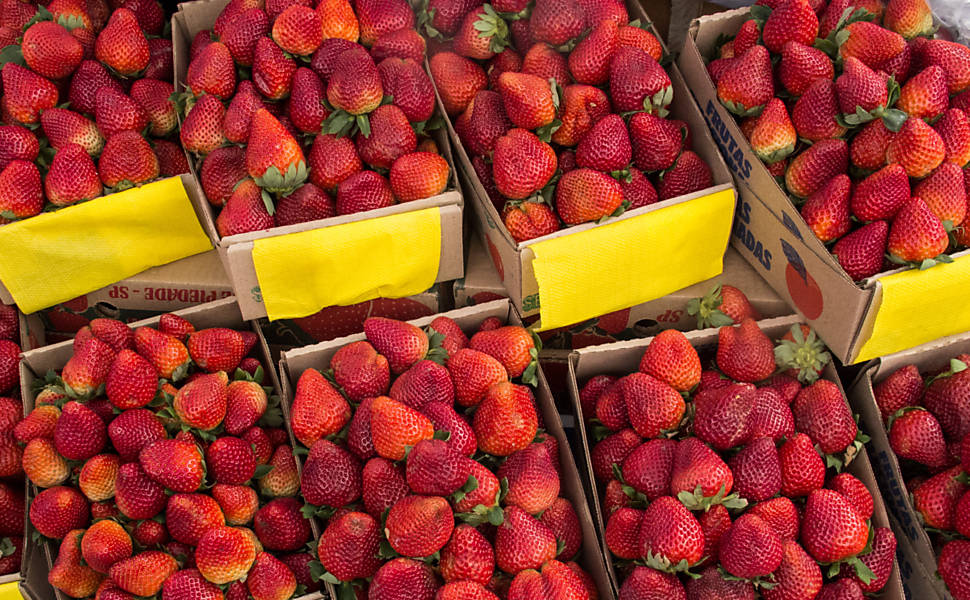Latest Photo Galleries
Brazilian Markets
10h46 Bovespa |
+1,02% | 127.215 |
16h43 Gold |
0,00% | 117 |
10h53 Dollar |
-1,58% | 5,1096 |
16h30 Euro |
+0,49% | 2,65250 |
ADVERTISING
Uninspected, Food Containing Irregular Pesticides Circulates in Brazil
10/05/2015 - 09h19
Advertising
LUCAS FERRAZ
EDUARDO GERAQUE
FROM SÃO PAULO
Documents obtained by Folha show that inspections of pesticide levels in food produced in Brazil, when executed, only reach a small fraction of the products and rejects a third of them.
Analysis from a sampling by Anvisa (National Health Surveillance Agency) of typical food in a basic basket in the state of São Paulo in 2014 showed that 31 percent contained banned pesticides or pesticides in quantities above the allowed amount.
The result reveals flaws in the quality control of horticultural farming crops produced and commercialized within national territory.
During all of last year, for example, according to a document from the Ministry for Agriculture, only two banana samples were collected at the Ceagesp (Warehouse Company and General Warehouse), in São Paulo for monitoring.
As the largest commercial warehouse in Latin America, it receives almost 30 percent of current national food products.
A leader in food production, Brazil, as a result, is one of the greatest consumers of pesticides on the planet. Among the substances used in the country are a few potentially carcinogenic ones, part of them banned by the European Union and countries such as China and India.
The responsibility for the control of pesticide levels in the country is federal, but the activity is shared between municipalities and states.
In a letter sent to the Public Defender's Office in the state of São Paulo, the Ceagesp acknowledges that it has not monitored the products it commercializes, a monthly average of 283 thousand tons, since 2009.
That year, the agency signed an agreement with the Ministry of Agriculture, which then became responsible for inspection.
Anvisa says it is wrapping up the process for the reevaluation of seven pesticides, which began in 2008, but does not provide a date of completion.
The Ministry of Agriculture currently collects samples in rural properties, commercial establishments and supply centers.
Translated by SUGHEY RAMIREZ




